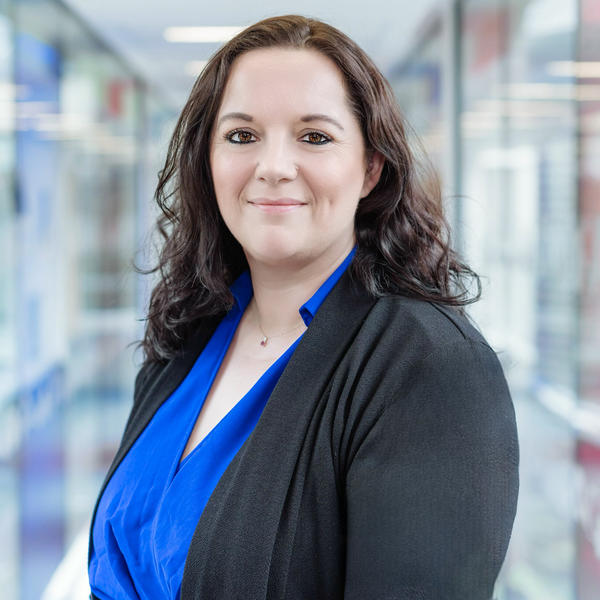Dr Sarah Brooks
Management School
Lecturer in Organisational Behaviour


+44 114 222 3218
Full contact details
Management School
Room C050
Sheffield University Management School
Conduit Road
Sheffield
S10 1FL
- Profile
-
I am a Lecturer in Organisational Behaviour and SUMS Academic Lead for Employability with a teaching and research portfolio. I am also an ICF and EMCC accredited coach with my own coaching practice, Powerful Dreaming.
I am the creator of the Career Development Plan, a critical thinking tool which underpins the first year undergraduate employability offering.
I lead a research project called Coaching as a Route to Voice which encourages people to have courageous conversations about workplace sexual harassment.
Prior to joining academia, I was an industry practitioner for 17 years where I worked as an operations manager and a change implementation manager. I have experience in a number of high profile public and private sector organisations across the UK, Europe and Australia.
- Research interests
-
My broad research interests span the fields of voice and silence and coaching. I am passionate about the use of coaching to help people find their voice and speak out about things that are important to them.
As a qualitative researcher, I am keen to use innovative and unique methods designed to provide insight into the reasons why employees speak up or remain silent whilst in the workplace.
- Publications
-
Books
- Missing Voice?. Edward Elgar Publishing.


Edited books
Journal articles
- Noninstitutionalized Work-Role Transitions: Antecedents, Processes, and Outcomes. Academy of Management Proceedings, 2024(1).


- Why and how does the Dark Triad personality influence knowledge hiding? A generativity perspective. Journal of Knowledge Management, 28(8), 2220-2237.


- Coaching as a route to voice: a framework for change. The Coaching Psychologist, 20(1), 50-62. View this article in WRRO


- More managers would ensure justifiable staff concerns are heard quickly. Health Service Journal. View this article in WRRO


- Applying a lens of temporality to better understand voice about unethical behaviour. Journal of Business Ethics, 188(4), 681-692. View this article in WRRO


- Missing voices? Integrating worker voice and social dialogue in the platform economy.


- Why do employees speak up? Examining the roles of LMX, perceived risk and perceived leader power in predicting voice behavior. Journal of Managerial Psychology, 34(8), 560-572.


- How does perceived formality shape unheard challenging voices?. International Journal of Human Resource Management, 29(5), 995-1014. View this article in WRRO


- How to Study Psychology. PSYCHOLOGIST, 26(12), 905-905.


- Understanding workplace voice and silence. EWOP in Practice, 6(1).


Book chapters
- Employee voice as a route to wellbeing In Brough P, Gardiner E & Daniels K (Ed.), Handbook on Management and Employment Practices (pp. 351-368). Springer International Publishing View this article in WRRO


- Employee Voice as a Route to Wellbeing, Handbook Series in Occupational Health Sciences (pp. 1-18). Springer International Publishing


Conference proceedings
- The role of distance in shaping relationship quality between leaders and followers. Academy of Management Proceedings, Vol. 2019(1) (pp 16378-16378). Boston, Massachusetts, USA, 9 August 2019 - 9 August 2019. View this article in WRRO


- Missing Voice?. Edward Elgar Publishing.
- Research group
- Professional activities and memberships
-
Working with organisations and public engagement
I am passionate about using my research knowledge to change perspectives and create an immediate impact to the way people think about upward information sharing in organisations. I enjoy public speaking and facilitating workshops where I frequently create bespoke tools and materials to support strategic themes.
If you are interested in knowing more about the reasons why employees do or don’t speak up to their managers, or how managers might encourage voice (or discourage it), please contact me. I am happy to run workshops designed to raise awareness of these issues.
If you would like to work with me on a piece of research in your organisation, I would also be delighted to hear from you.
Previous examples of my work include:
- Brooks, S (2024). Coaching as a Route to Voice about Unethical Behaviour. EMCC Special Interest Group in Coaching Psychology. Online
- Brooks, S (2024). Delaying adulthood: Resistance to coaching about career choices for UG students. Coaching in Higher Education Consortium, Online.
- Brooks, S (2024). Coaching as a Route to Voice about Sexual Harassment. The BPS Division of Coaching Psychology Conference, London, UK
- Brooks, S (2024). Coaching as a Route to Voice. Sheffield Coaching Exchange, Sheffield, UK.
- Brooks, S (2023). Coaching as a Route to Voice. Round Table at the BPS Division of Coaching Psychology Conference, London, UK
- Brooks, S (2023). Coaching as a Route to Voice. Invited talk by the European Mentoring and Coaching Council. Online.
- Brooks, S (2021, Sept). Speaking Truth to Power. Invited talk for the Healthcare People Management Association. Online.
- Brooks, S (2021, July). Breaking the Silence: Workplace Culture and Knowing the Line. Invited talk for Sheffield Women in Technology in support of the Know The Line Campaign https://knowtheline.org/sexual-harassment-at-work/
- Brooks. S and Cantore, S (2021). Harnessing the power of voice: empowering individuals and organisations to speak up about what's important. Invited talk for the Healthcare People Management Association.
- Brooks, S (2020, April). Voice and Silence. Invited talk for Twinkl Educational Publishing as part of their Leadership Café series.
- Brooks, S (2019) - Does it look like we want to hear your views? How organisation structure and communication channels shape voice and silence. Invited talk at the Expert Insights Series, hosted by Antonia Dietman on behalf of the Her Majesty’s Courts & Tribunals Service.
- Brooks, S (2019). How do UK Police Officers Challenge Upwards in Formal Situations? 19th EAWOP Congresso, Turin, Italy.
- December (2018). Researching voice of concerns about unethical behaviour in a UK Police Force. Invited talk at Deakin University, Melbourne, Australia.
- December (2018). Researching voice of concerns about unethical behaviour in a UK Police Force. Invited talk at Curtin University, Melbourne, Australia.
- Brooks, S (2018). How Do Perceptions of In-role Behaviour Shape Propensity to Voice Concerns about Unethical Behaviour in a UK Police Force? 6th Biennial Institute of Work Psychology Conference, Sheffield, UK.
- November (2017) - Researching Voice and Silence in the UK Police Service. Invited talk at Loughborough University as part of the Centre for Professional Work and Society lunchtime seminar series.
- Brooks, S (2017). How Could Perceived Formality Shape Upward Challenge? British Academy of Management Annual Conference, Warwick.
- September (2015) - Why Do People Not Speak Up in a Compliance Setting? Invited presentation at the Corporate Governance & Risk Forum with Peter Kurer.
Brooks, S (2015). How Do Perceptions of Formality Shape the Upward Sharing of Information? White Rose DTC Summer Conference, Sheffield.
- PhD Supervision
Dr Sarah Brooks supervises:
Sarah has previously supervised:
Name Thesis title Year of completion Edward Walker Artificial intelligence in Professional Services firms - the role of business model transformation 2024 Mary Skordia Organizational ambidexterity as a strategic decision: its relationship with strategic decision speed and the moderating role of CEO cognition and environmental dynamism under the global pandemic 2023 Are you interested in applying for a PhD?


